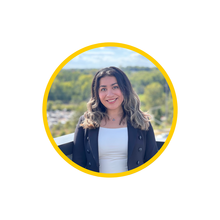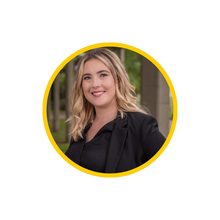(Pictured Left to Right: Kathryn Linehan, Liz Vargas Perez, Maureen Wainwright)
The pro-bono program here at the University of Iowa College of Law, led by Brian Farrell, follows a mission that helps students develop the knowledge, values, and skills that are essential to a career in the field of law. Farrell explains, “Pro-bono projects provide a structured way for students to volunteer with governmental and nonprofit legal agencies such as Iowa Legal Aid, Johnson County Attorney’s Office, and State Public Defender.” These opportunities allow students to gain hands-on experiences and participate in experiential learning as early as their first semester at Iowa Law. Participating in pro-bono projects, “allow students to engage in legal research and writing while also learning about areas of practice, networking with attorneys, and developing professional and communication skills.”
This program also emphasizes the importance of public service within the legal field. Farrell explains, “It helps them integrate public service into their professional careers from the start.” Moving forward, the program aims to build a stronger network of community partners and cultivate student participation. Ultimately, the most rewarding aspect of managing the program for Farrell is, “knowing that students are gaining experience and learning more about their interests while helping the public.”
This foundation fosters a strong sense of purpose and community engagement as students embark on their legal careers. In reflecting on their involvement, student testimonies highlight the multi-fold growth they’ve experienced through these projects.

Liz Vargas Perez
“I started volunteering at the New Iowans Legal Clinic (NILAC) during my first semester here, and it has been an incredibly rewarding experience. NILAC is a free walk-in clinic where attorneys volunteer their time to provide legal services to those in need. Attorneys from various practice areas, including immigration, family, and civil law, come together to assist community members with their legal questions.”
“My role at NILAC has included facilitating communication between attorneys and clients through interpreting and fulfilling various administrative needs of the clinic. One of the most notable moments was in my first semester, interpreting for a client after a long day at school. Despite having legal work experience and being in law school, I found the process they had to go through quite challenging. This experience emphasized how complex and overwhelming the legal system can be for individuals, regardless of their background or education. It also deepened my understanding of the importance of making legal services accessible to everyone.”
“Volunteering at NILAC helps me get through hard days at school, as it is rewarding to use my new skills to help others. This experience has solidified my commitment to pro bono work, which I intend to carry throughout my career, regardless of where I end up practicing. My passion to make legal services more accessible has only deepened over the past four semesters.”

Maureen Wainwright
“In [the Housing and Eviction Data Project], several other law students and I volunteered to catalogue various eviction cases into a spreadsheet, creating a dataset that Iowa Legal could use to demonstrate the difference in outcomes for litigants with and without representation in housing cases. Through this experience, I gained insight into Iowa Legal Aid’s efforts to assist individuals facing eviction. I learned that many of these individuals either do not have legal representation or do not attend their eviction hearings. However, cases where Iowa Legal Aid was able to provide representation had significantly more successful outcomes than those without. I found it rewarding to contribute to Iowa Legal Aid’s efforts in using data to highlight the critical need for legal counsel in eviction proceedings.”
“For [the Tribal Outreach Project], another student and I have been researching and drafting a proposal for Iowa Legal Aid leadership on how the organization can better serve Indigenous populations in Iowa. We have been reaching out to legal aid organizations across the country to learn about their support for local indigenous populations, as well as gathering information on the specific needs of the Meskwaki, Winnebago, Omaha, and Ponca tribes. Before starting this project, I had limited knowledge of Federal Indian Law. While I still am far from an expert, I have learned about the challenges tribes face in accessing legal aid, particularly the significant barriers created by a lack of trust and high rates of turnover among attorneys staffing tribal outreach programs.”

Kathryn Linehan
“I am currently involved in the Citizen Lawyer Program, where I am doing pro-bono work with the Iowa Supreme Court Access to Justice Commission. My recent research project included a national landscape review of strategies Access to Justice Commissions use to mitigate the adverse impacts of civil fines and fees, particularly for those who are low-to-moderate income. Together with my research partner and fellow 1L, Megan LeBlanc, we reviewed the work being done by four-two State and Territory Access to Justice Commission across the United States and prepared our findings in a final memo. In December, I was able to present these findings directly to the Commission.”
“Pro-bono work has given me the opportunity to strengthen my legal writing and research skills, work on real-world legal issues, and give back to my broader community.”
